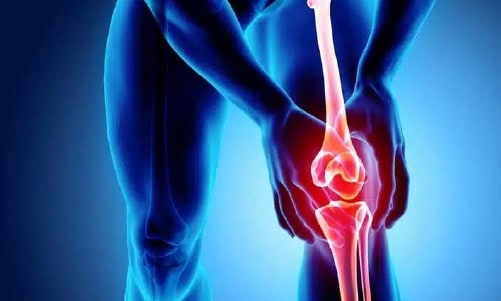Knee replacement surgery is a transformative procedure that offers relief to countless individuals suffering from debilitating knee pain. Let’s explore the intricacies of this surgery, its benefits, and the complications it effectively addresses. From osteoarthritis to severe injuries, knee replacement surgery provides a new lease on life for those in need.
If you're considering knee replacement surgery, reach out to us, or book a direct appointment with our orthopaedic surgeon. At the CK Birla Hospital, we are dedicated to ensuring that your knee replacement surgery is as safe, comfortable, and effective as possible. We're here to guide you every step of the way towards a successful recovery.

Delaying or improperly performing a knee replacement surgery can lead to several risks, including:
Knee replacement surgery is primarily divided into two types:
Materials (metal, plastic, ceramic) vary in knee replacement. Surgery choice depends on damage and the patient’s needs assessed by their orthopaedic surgeon.
Generally, the average cost of knee replacement surgery is approximately Rs. 2.6 lakh (unilateral), depending upon numerous factors, such as the surgeon’s experience, location, length of the treatment, and the hospital’s price structure. The average cost of Total Knee Replacement (Bilateral) is around Rs. 3.7 Lacs .
However, the cost of a knee replacement surgery varies as per the specific type advised by healthcare providers, such as:
To get an explicit estimate for the cost of a knee replacement surgery at the CK Birla Hospital, contact the hospital directly. Additionally, you can consult with our board-certified orthopaedic surgeon to discuss your specific needs and receive a personalised quote for the procedure.
1. Medical History Evaluation: Review the patient's medical history to assess prior knee issues, past treatments, and underlying health conditions.
2. Physical Examination: A thorough physical examination to assess the knee's range of motion, stability, and overall condition.
3. Imaging Tests: Utilising imaging tests such as X-rays and MRI scans to:
Knee replacement surgery is a medical procedure where a damaged or arthritic knee joint is replaced with an artificial implant to relieve pain and improve mobility.
Knee replacement surgery is generally safe when performed by experienced surgeons, but like any surgery, it carries some risks, including infection, blood clots, and complications. Risks vary by individual.
During knee replacement surgery, damaged bone and cartilage are removed, and artificial components are implanted. It can be partial or total, using various surgical techniques and materials.
Total knee replacement surgery is typically associated with moderate to severe postoperative pain, which is managed with pain medication and improves over time during the recovery process.